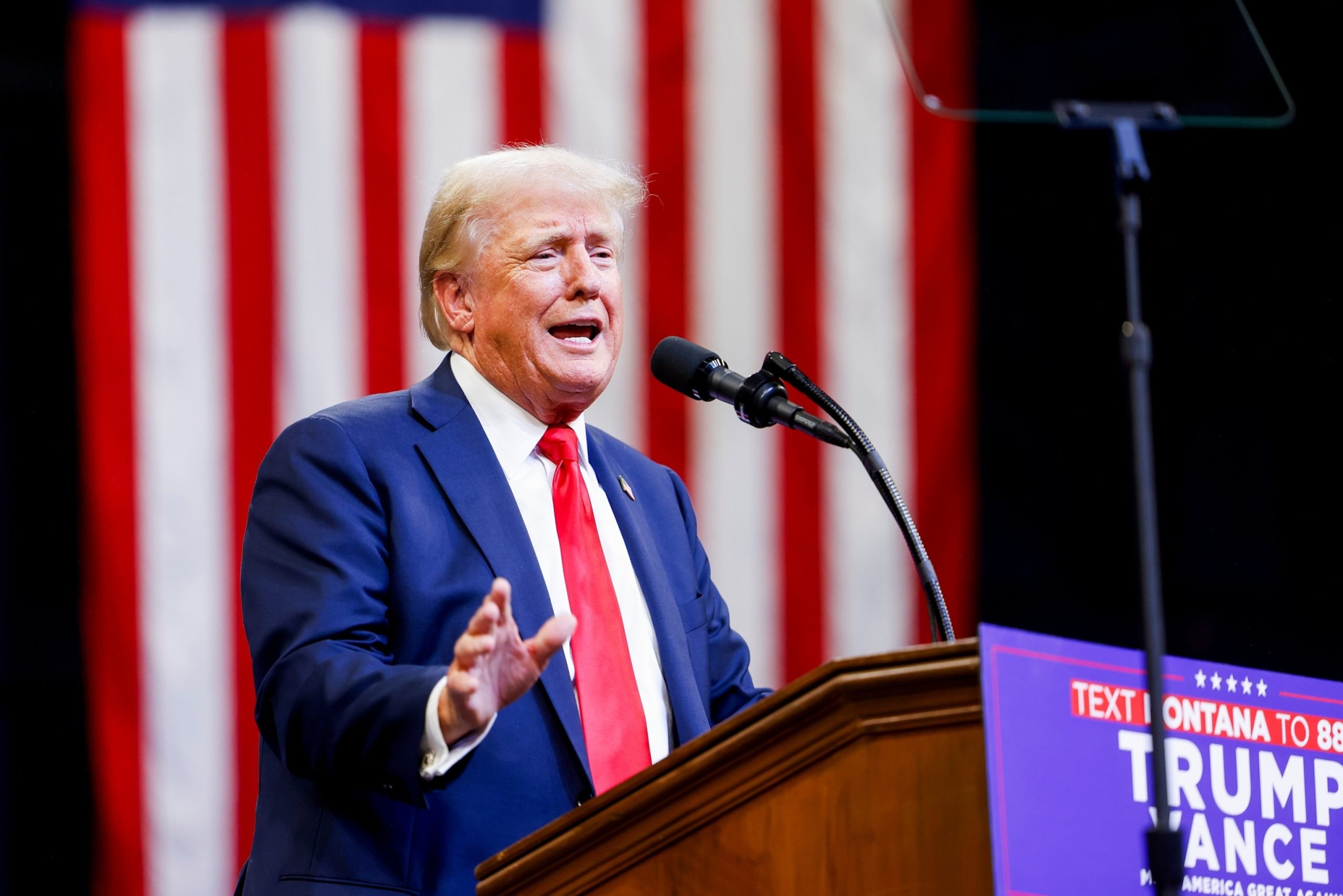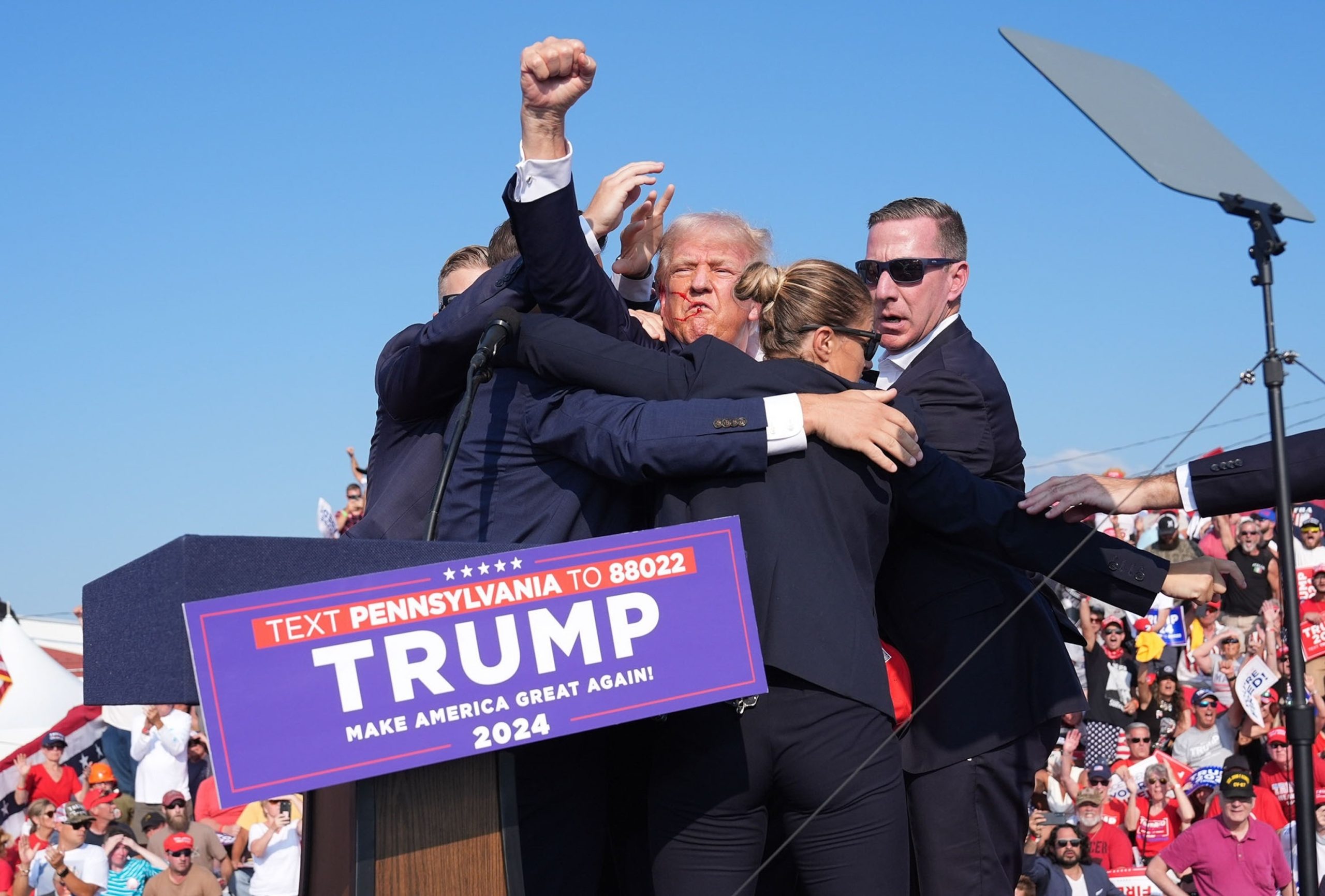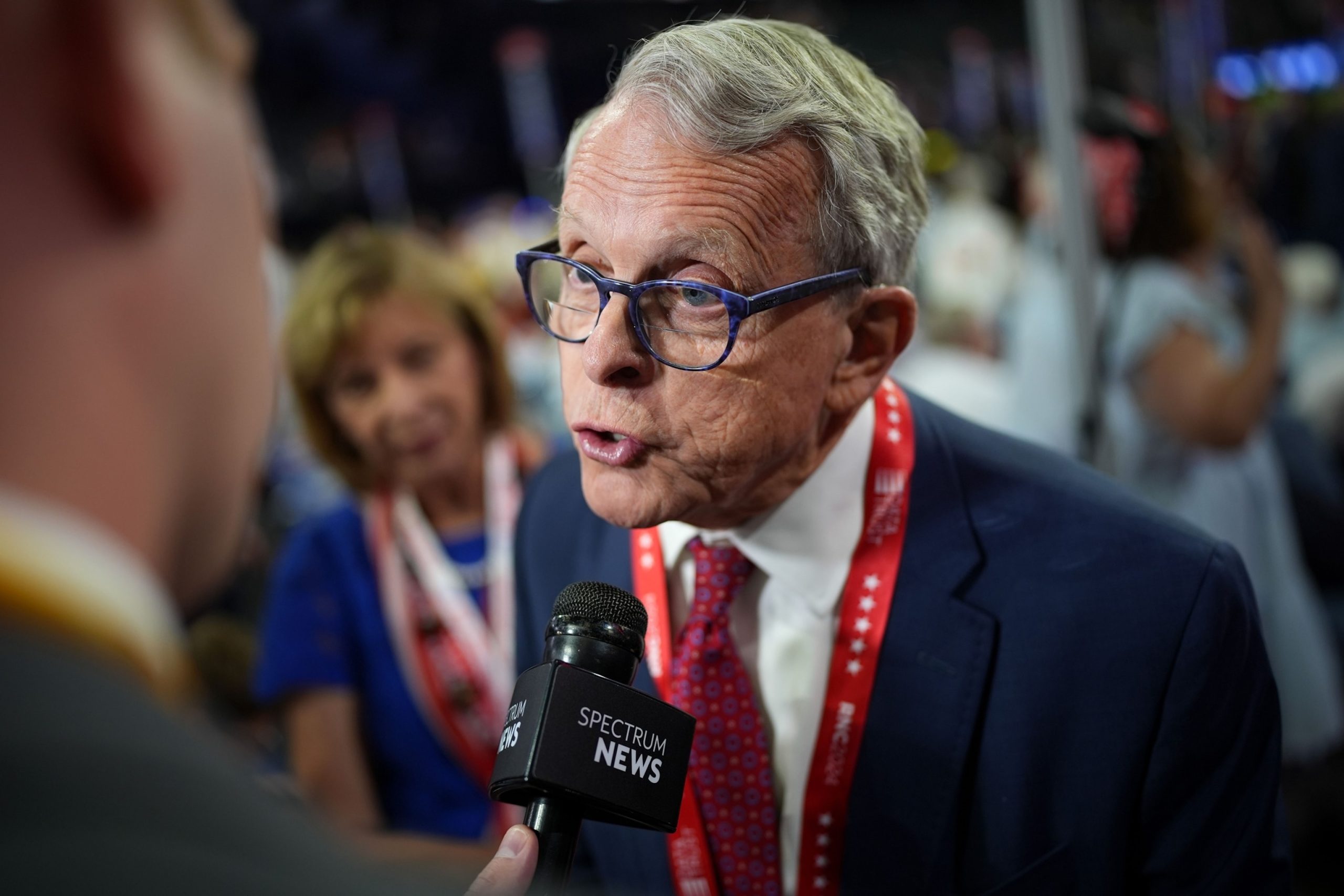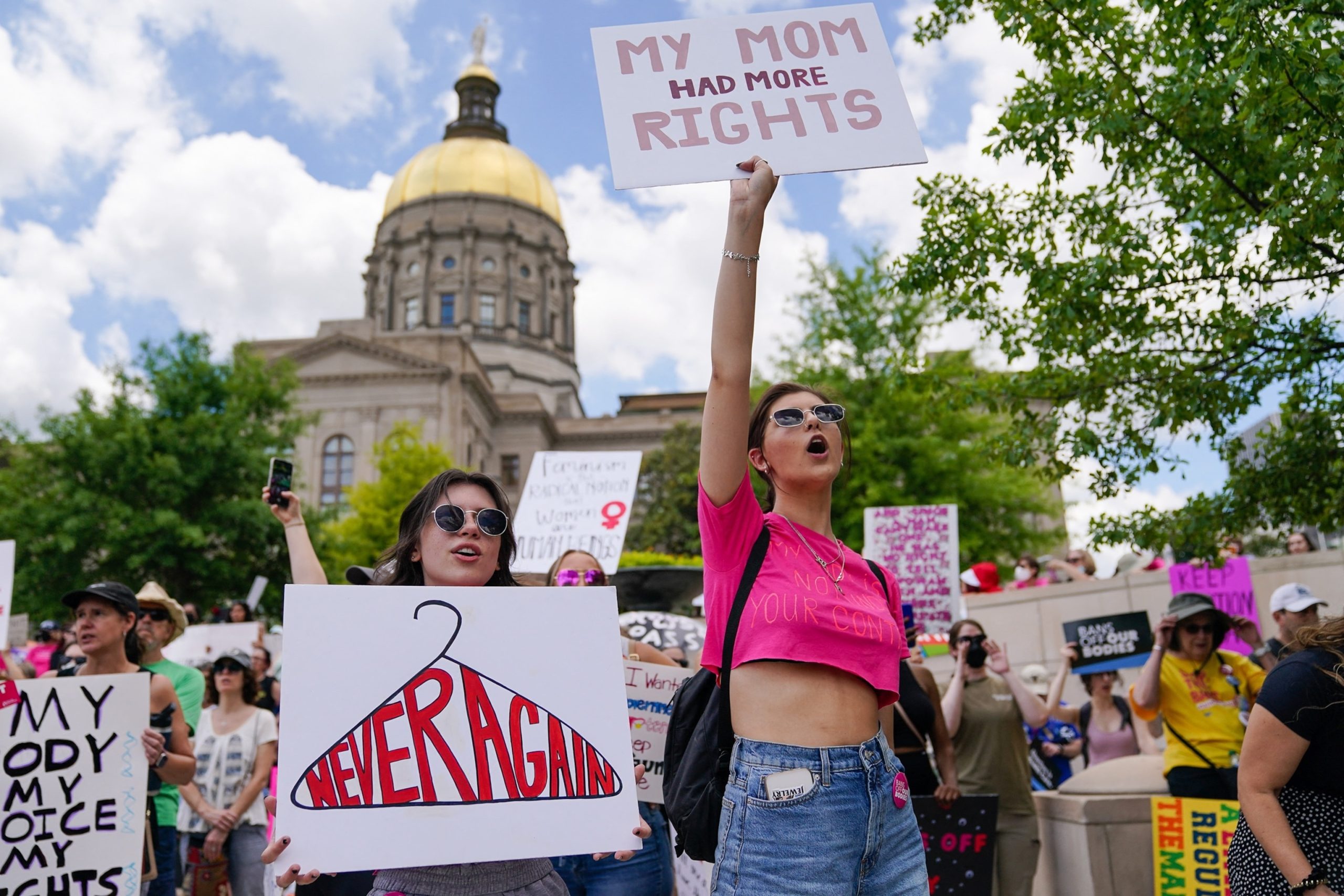Former President Donald Trump is set to deliver remarks on the economy in North Carolina on Wednesday as the campaign works to reset his campaign against Vice President Kamala Harris.
“The election’s coming up, and the people want to hear about the economy,” Trump said during an interview with Elon Musk on X Monday, directly blaming the Biden-Harris administration for what polls show is Americans’ pessimism about the economy.
The economy has been one of the Trump campaign’s central election issues this cycle — the former president often spending a considerable amount of time discussing inflation, gas prices and the job market.
“I just ask this: Are you better off now, or were you better off when I was president?” Trump said Monday night as he was wrapping up his conversation with Musk.
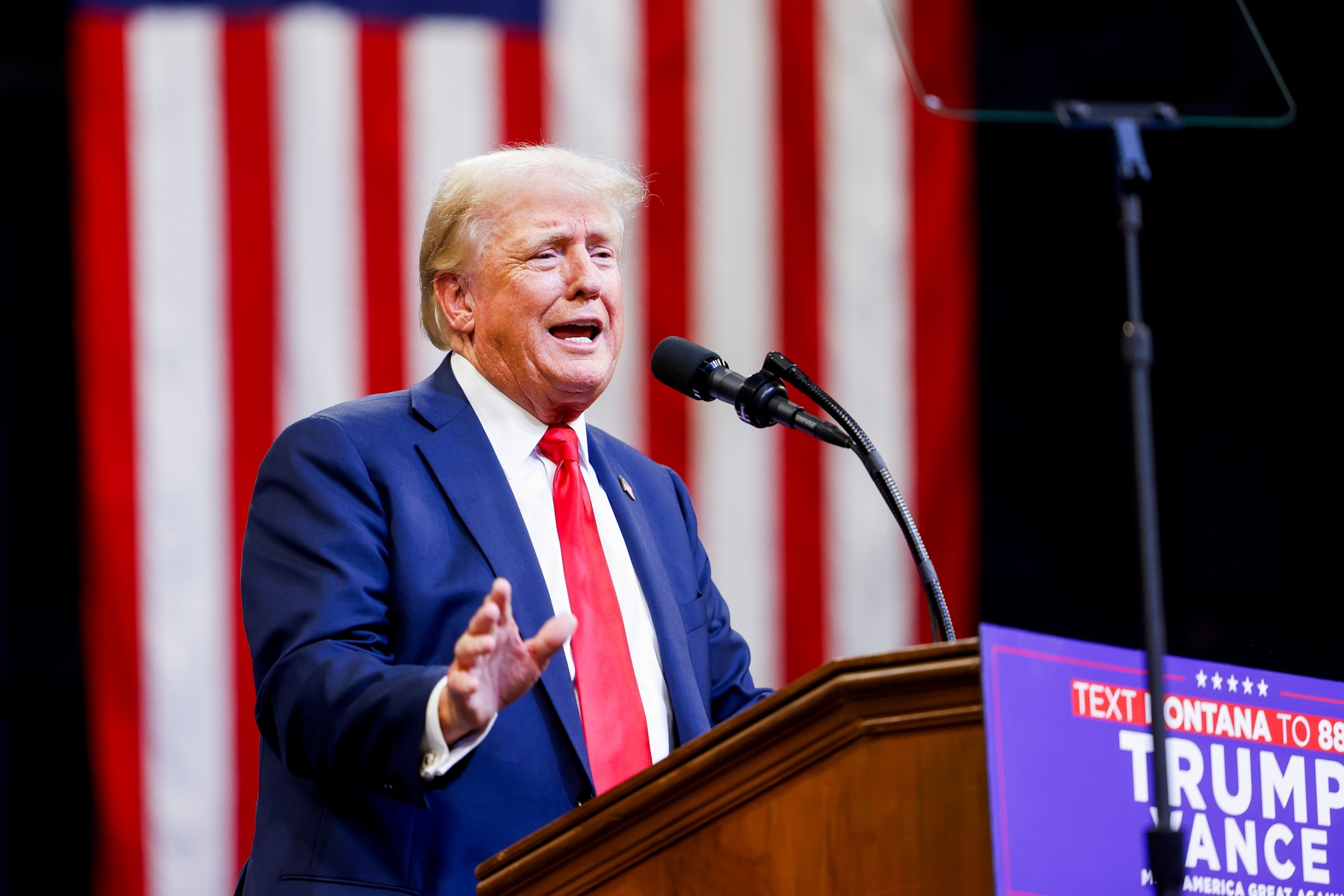
Republican presidential nominee, former U.S. President Donald Trump, speaks at a rally at the Brick Breeden Fieldhouse at Montana State University on August 9, 2024, in Bozeman, Montana. (Photo by Michael Ciaglo/Getty Images)
Michael Ciaglo/Getty Images
Last week, Trump blamed the Biden-Harris administration for the recent stock market sell-off and called it a “Kamala crash” — making unfounded claims that the downswing happened because people have “no confidence” in Harris, while experts pointed to concerns about the health of the U.S. economy and that the Federal Reserve’s long wait to cut interest rates as among key reasons for the downturn.
Though the stock market has since bounced back, Trump has seized on economic worries, claiming without evidence or elaboration that if Harris wins in November, there could be a “Great Depression” on par with that of 1929 — an unfunded attack he previously used against President Joe Biden.
On the campaign trail, Trump, even as he rails against the economy under the Biden administration, has announced sparse details on specific economic policy proposals for his possible second administration, often offering his signature “Trump tax cuts,” “Trump tariffs” and “drill, baby, drill” — a boost for the oil and gas industry — as solutions to most economic problems.
In recent weeks, however, he has touted two new policies: a proposal to eliminate taxes on tip wages and Social Security for seniors.
While campaigning in Las Vegas in June, Trump made a direct appeal to Nevada’s hospitality industry workers by announcing that the tax cuts would be the “first thing in office” he would do.
Harris also recently advocated for the same policy, drawing criticisms from Trump and his allies who called her “Copy Cat Kamala.”
“Copy Cat Kamala Harris proved she has no plan or ideas of her own to fix the economic pain and suffering that she personally inflicted on the American people for the last four years,” the campaign said in a statement.
The former president has argued extending the tax cuts from his first administration would be a solution to boosting financial stability for Americans; however, experts say many of his first term economic policies favored the wealthy while also warning that an extension of cuts could exacerbate the country’s budget deficit problem.
Harris is also expected to make her first major policy rollout this week since jumping into the race with an economic policy speech.
Harris’ speech will detail her plan to “lower costs for middle-class families and take on corporate price-gouging,” a campaign official said.
The two dueling policy speeches come as the economy remains a central focus in the race to the White House for both campaigns.
Trump’s speech on Wednesday may also offer a more focused approach to contrast his vision with Harris as supporters have cautioned Trump away from personal attacks against Harris.
Both candidates have room to improve their reliability on economic issues, according to a recent CNBC poll from August, in which 40% of poll respondents said they would be better off financially if Trump wins, 21% said if Harris wins, and 35% responded saying their financial situation would not really change.
Several Trump supporters suggest the recent rise in prices at the grocery store or gas station as a reason they’re behind the former president, and younger voters are also concerned about home buying despite the president’s lack of control of mortgage rates.
“At the end of the day, we have got a lot of work to do to turn this country around. We need to secure the borders. We need to fix inflation. We need to make house prices affordable again,” Dante Bernard, a Trump supporter attending Trump’s Atlanta rally this month, told ABC News. “Less insulting and talking about people’s race or identity and more policies 100%. Let’s focus on politics. Let’s stop the name-calling.”
“It’s all about freedom, small government, less taxes. $2 Gas does everyone remember when it was $2 Gas? remember $2 Trump?” said Dan Bawler, from Carson City, Nevada, praising Trump administration policies.
Democratic voters who spoke with ABC News also say they’re concerned about the economy.
“The economy for my children, my grandchildren — I want to see them flourish and do well in a healthy economy,” said James Allen, a Democratic voter from Roanoke, Virginia.
President Donald Trump is set to make his return to the campaign trail in North Carolina, where he will be delivering remarks on the state of the economy. This comes as the country continues to grapple with the economic fallout from the ongoing COVID-19 pandemic.
The event, which will take place in the city of Wilmington, is expected to draw a large crowd of supporters eager to hear the President’s plans for revitalizing the economy and getting Americans back to work. Trump has made the economy a central focus of his re-election campaign, touting his administration’s record of job creation and economic growth prior to the pandemic.
However, the President will also likely face questions about his handling of the economic crisis brought on by the coronavirus, which has led to record levels of unemployment and business closures across the country. Critics have accused Trump of downplaying the severity of the pandemic and failing to take decisive action to mitigate its economic impact.
In recent weeks, Trump has sought to shift the focus away from the pandemic and towards a message of economic recovery and rebuilding. He has touted his administration’s efforts to provide financial relief to businesses and individuals through stimulus packages and other measures, and has expressed optimism about a swift rebound once the country reopens.
As Trump takes the stage in North Carolina, he will be looking to energize his base and rally support for his re-election bid. The state is seen as a key battleground in the upcoming election, with both Trump and Democratic nominee Joe Biden vying for its crucial electoral votes.
The President’s remarks on the economy are likely to touch on a range of issues, from job creation and tax cuts to trade policy and infrastructure spending. Trump will likely highlight his administration’s efforts to boost economic growth and create new opportunities for American workers, while also taking aim at his political opponents and their economic policies.
Overall, Trump’s return to the campaign trail in North Carolina promises to be a high-energy event that will set the tone for the final stretch of the election season. As the country continues to grapple with the economic fallout from the pandemic, all eyes will be on the President as he lays out his vision for a brighter economic future for America.
